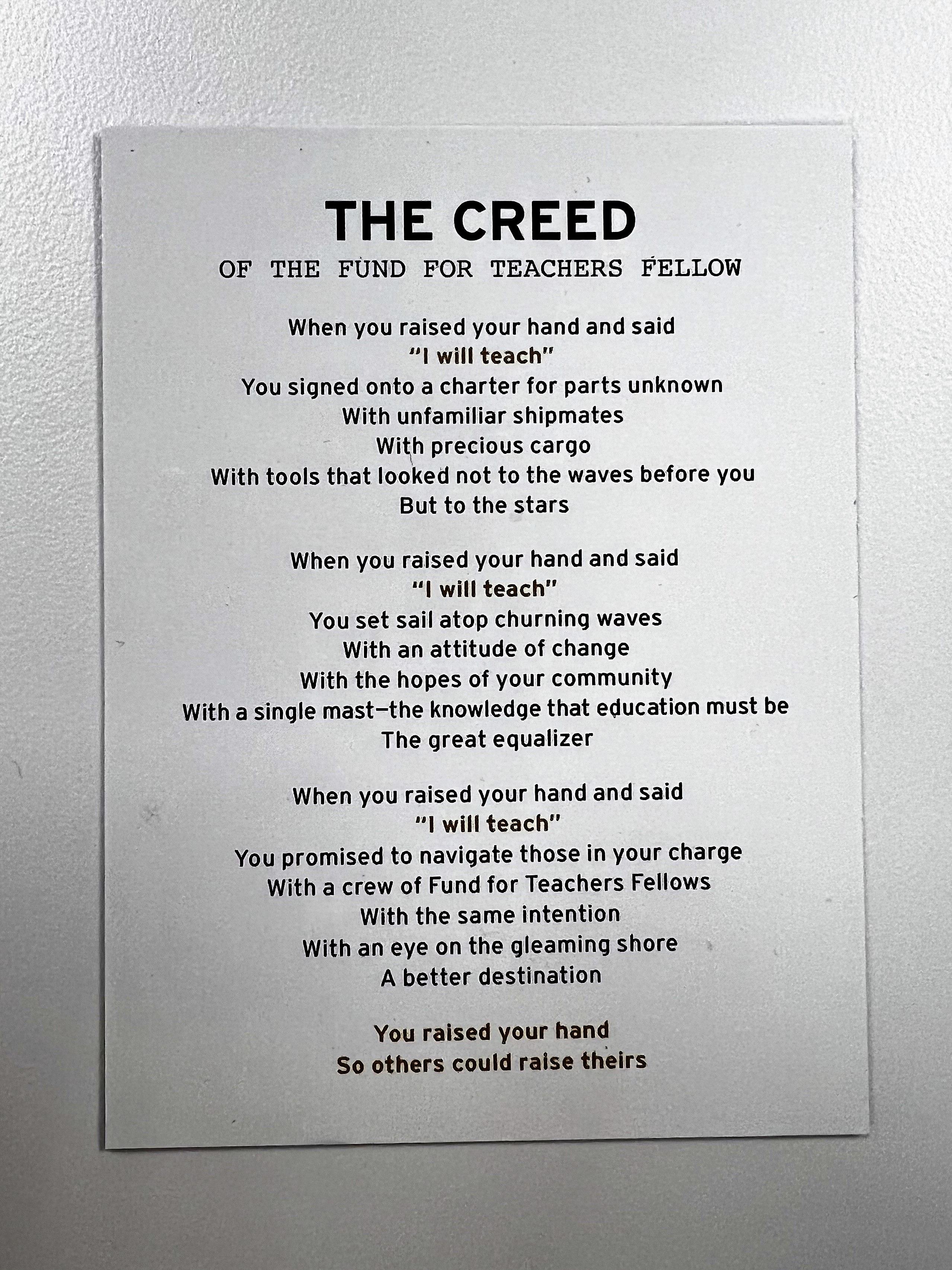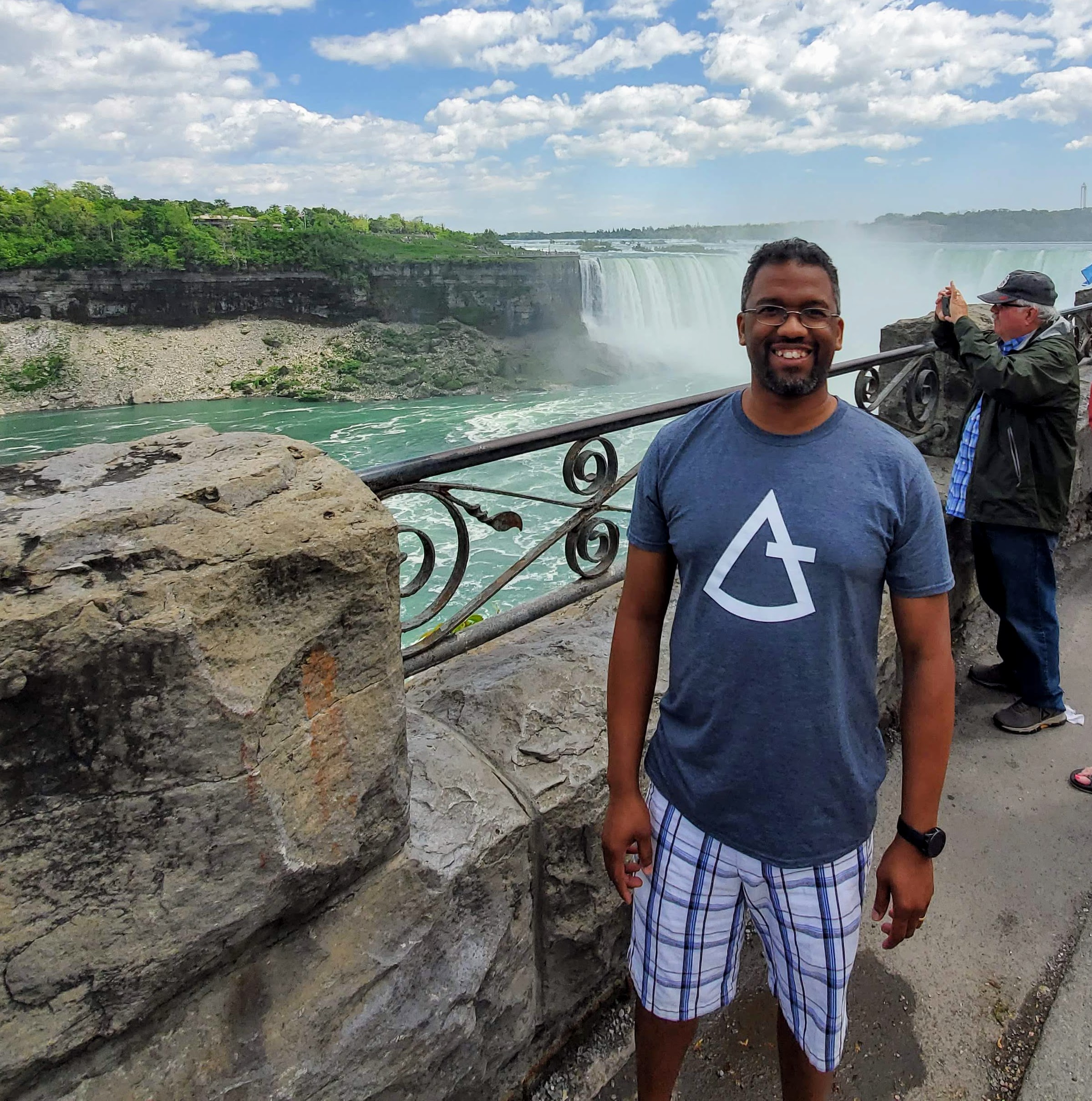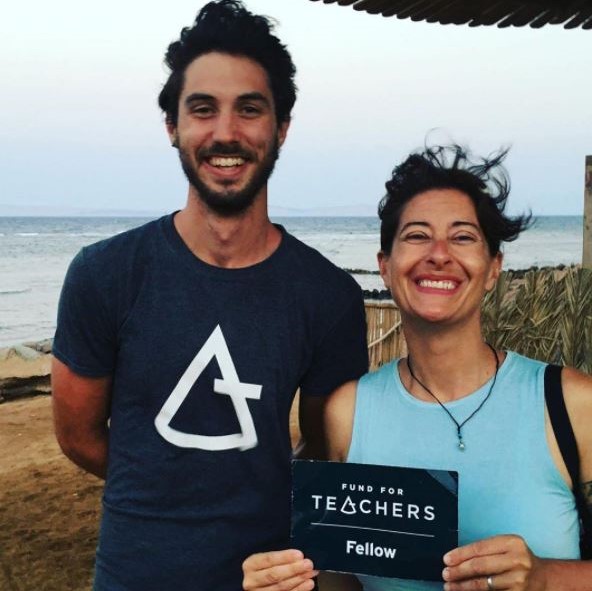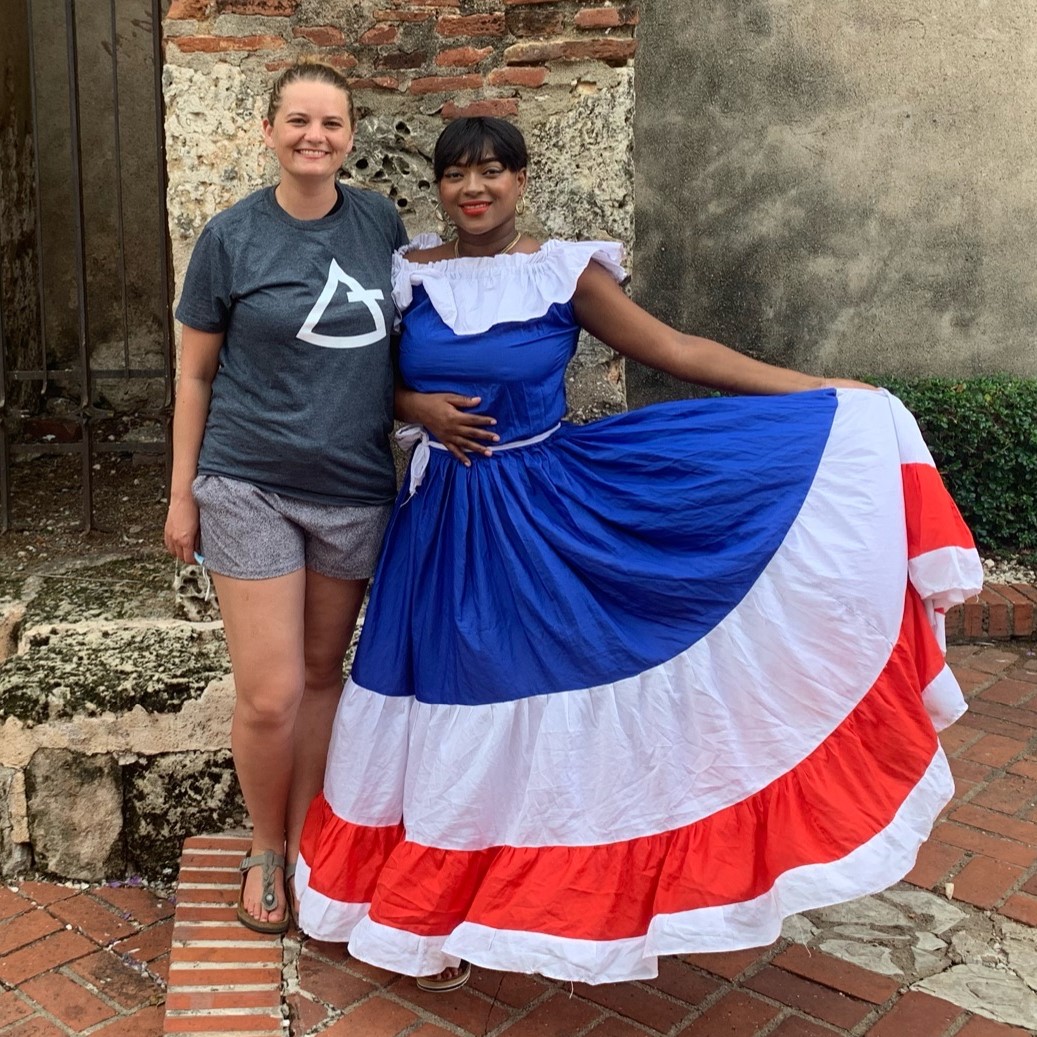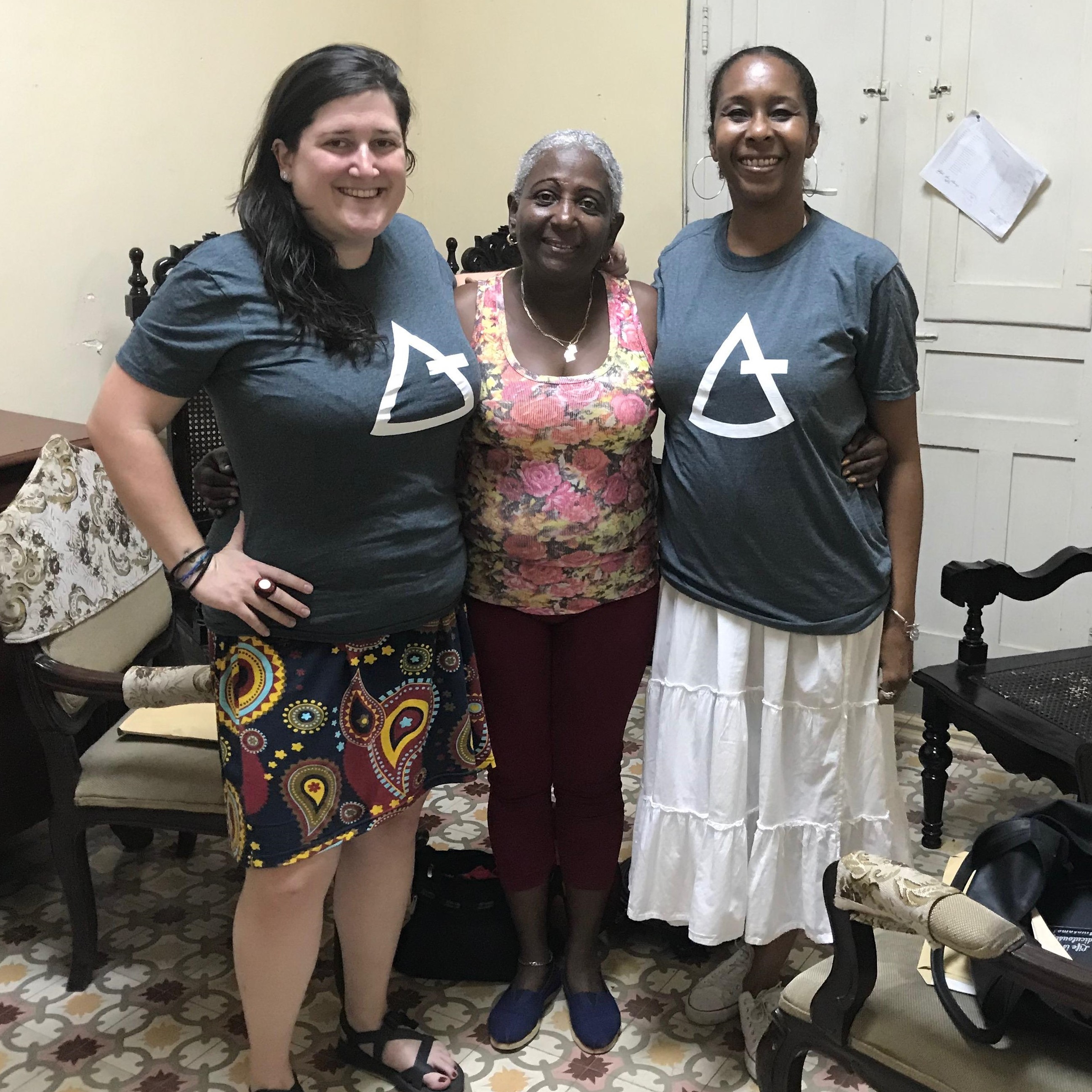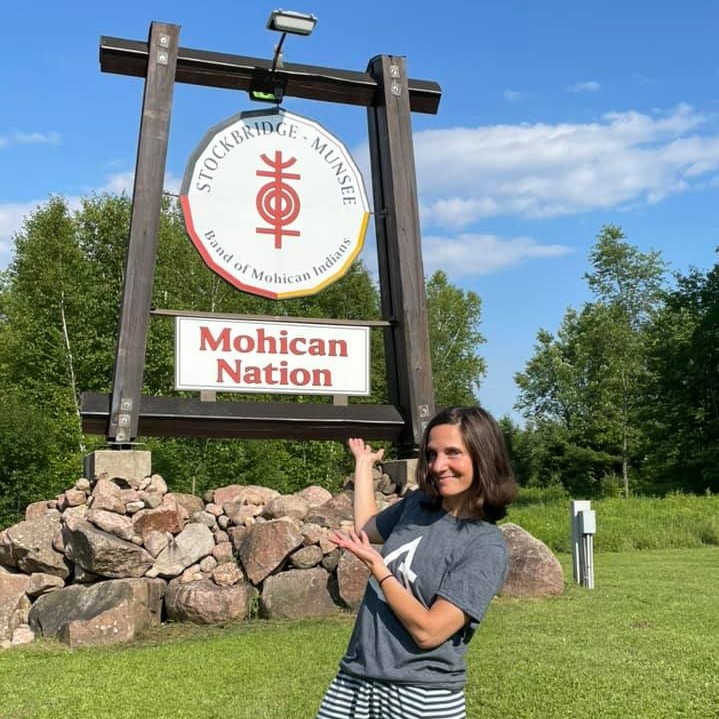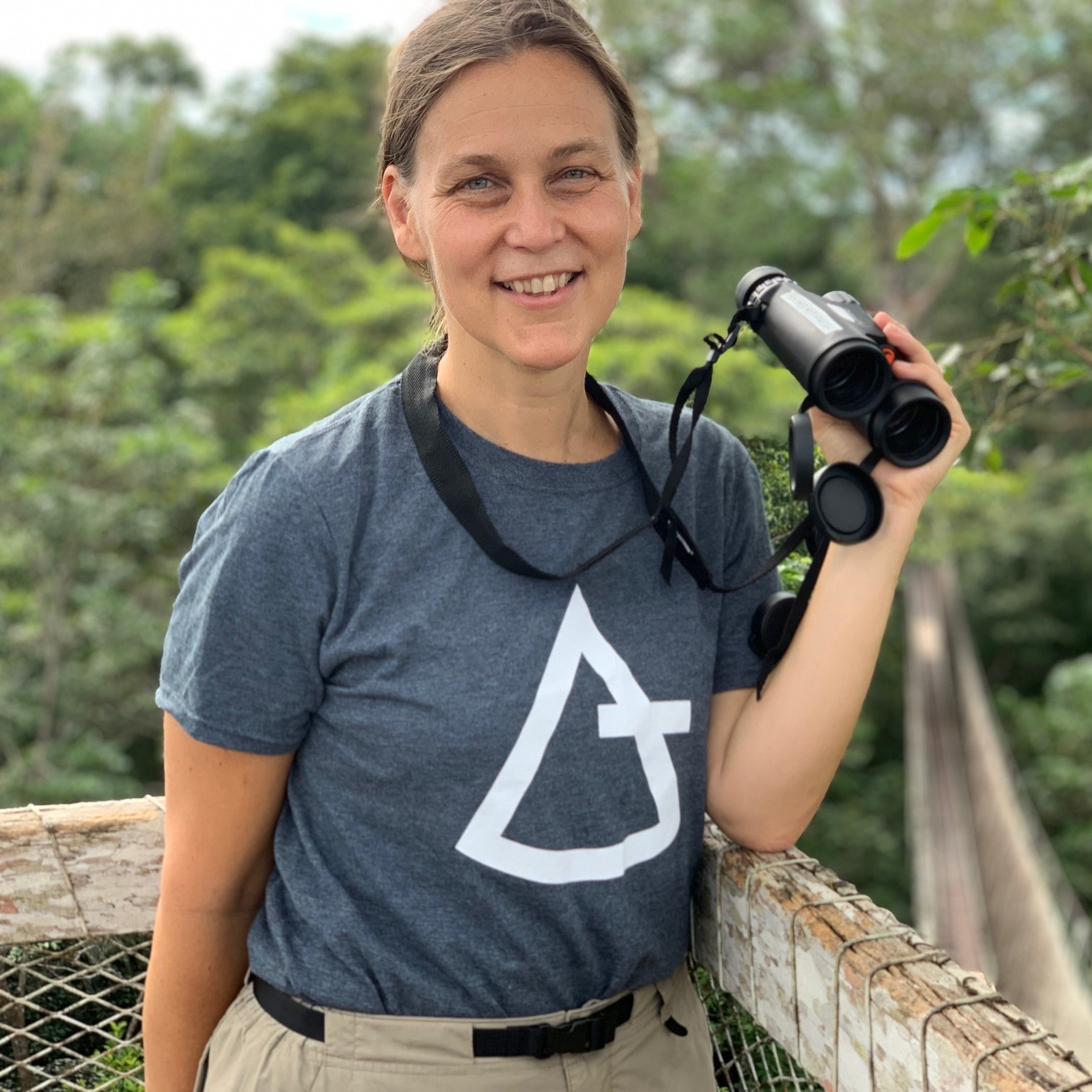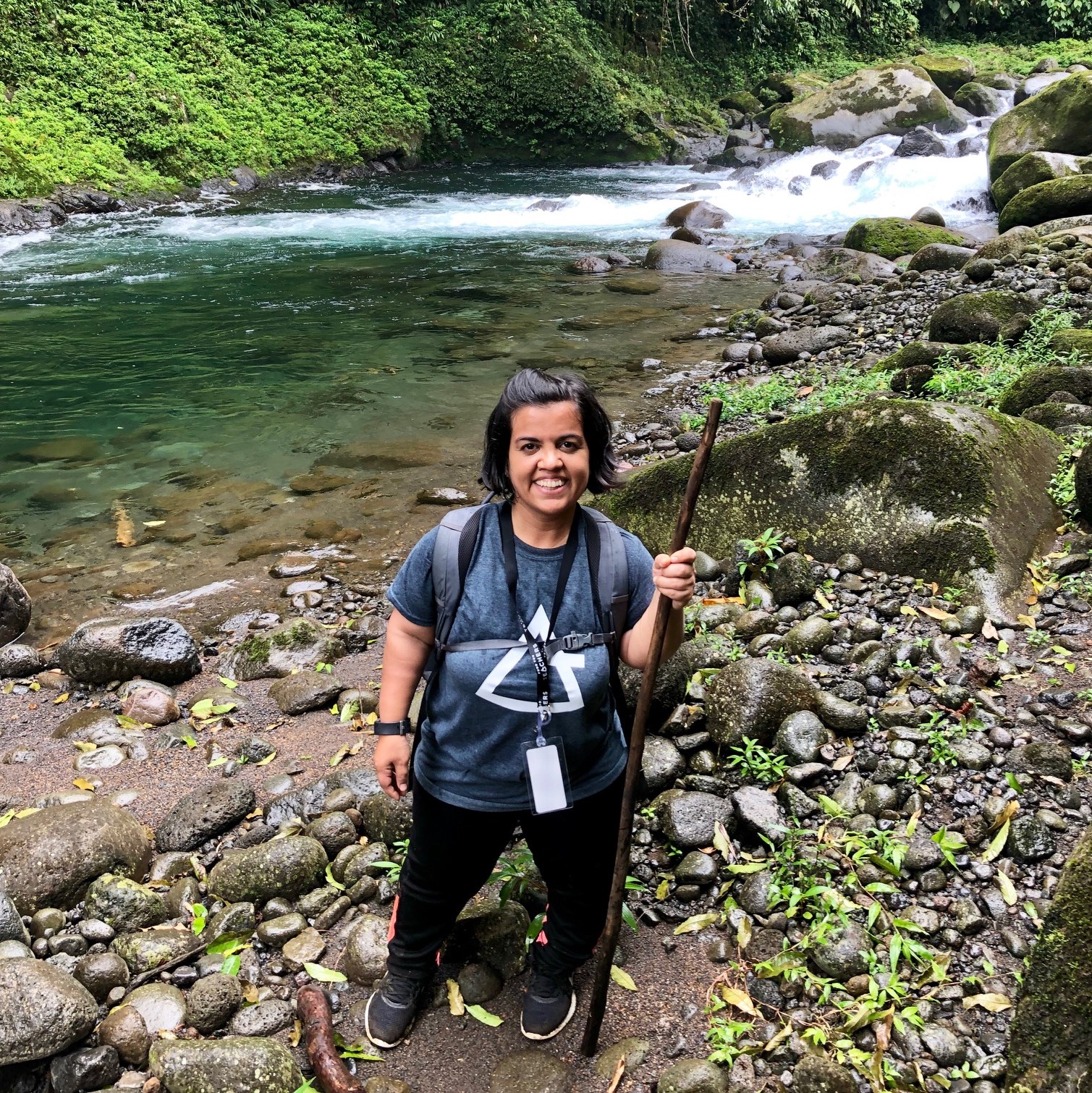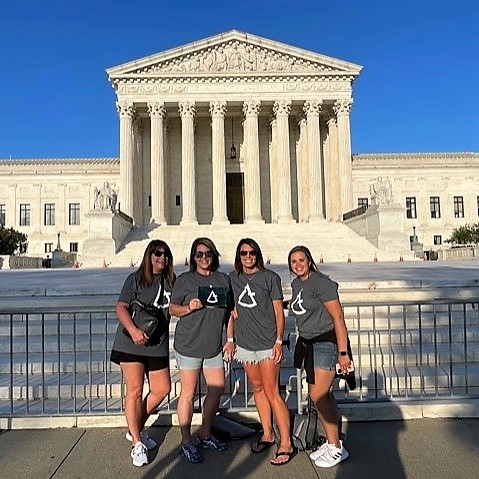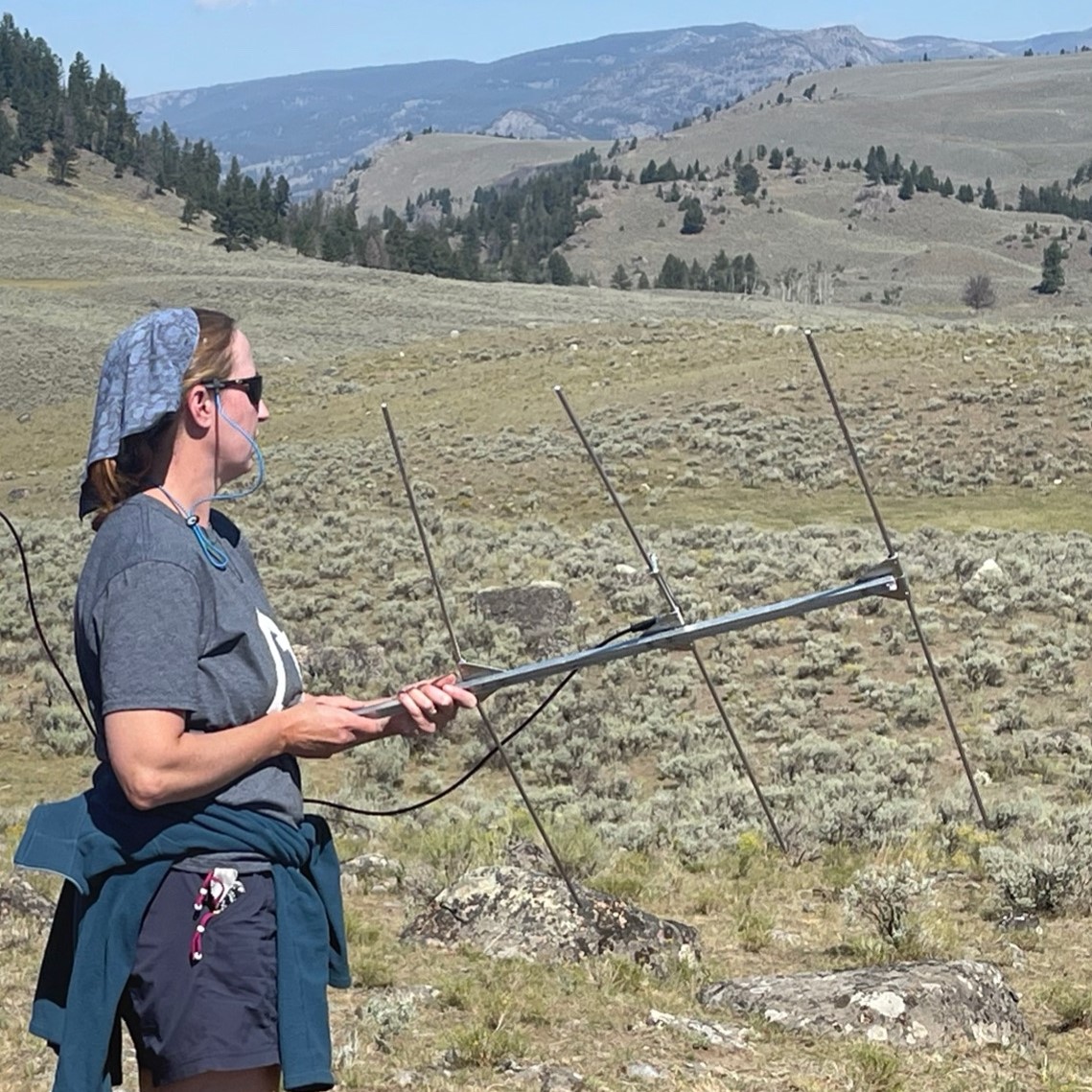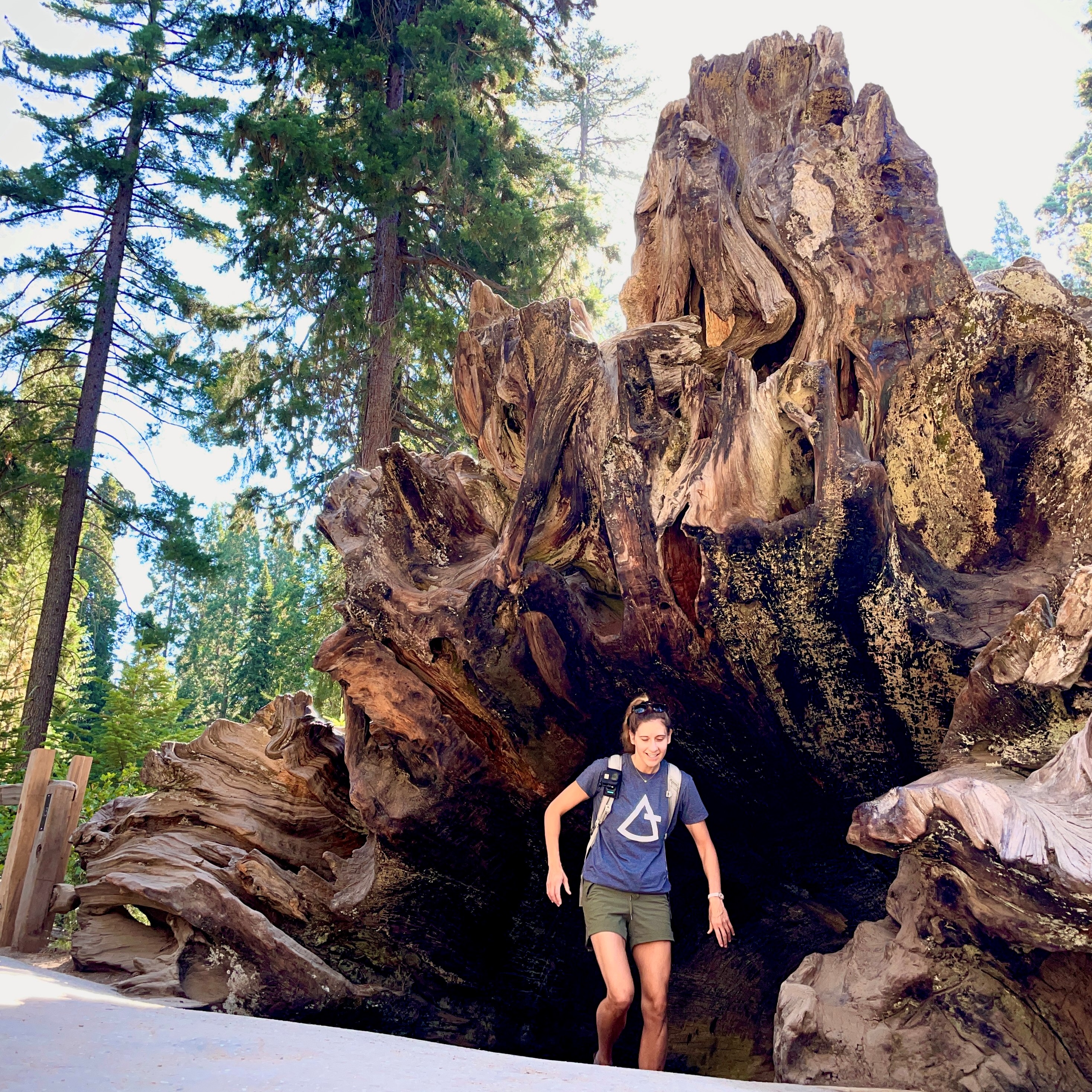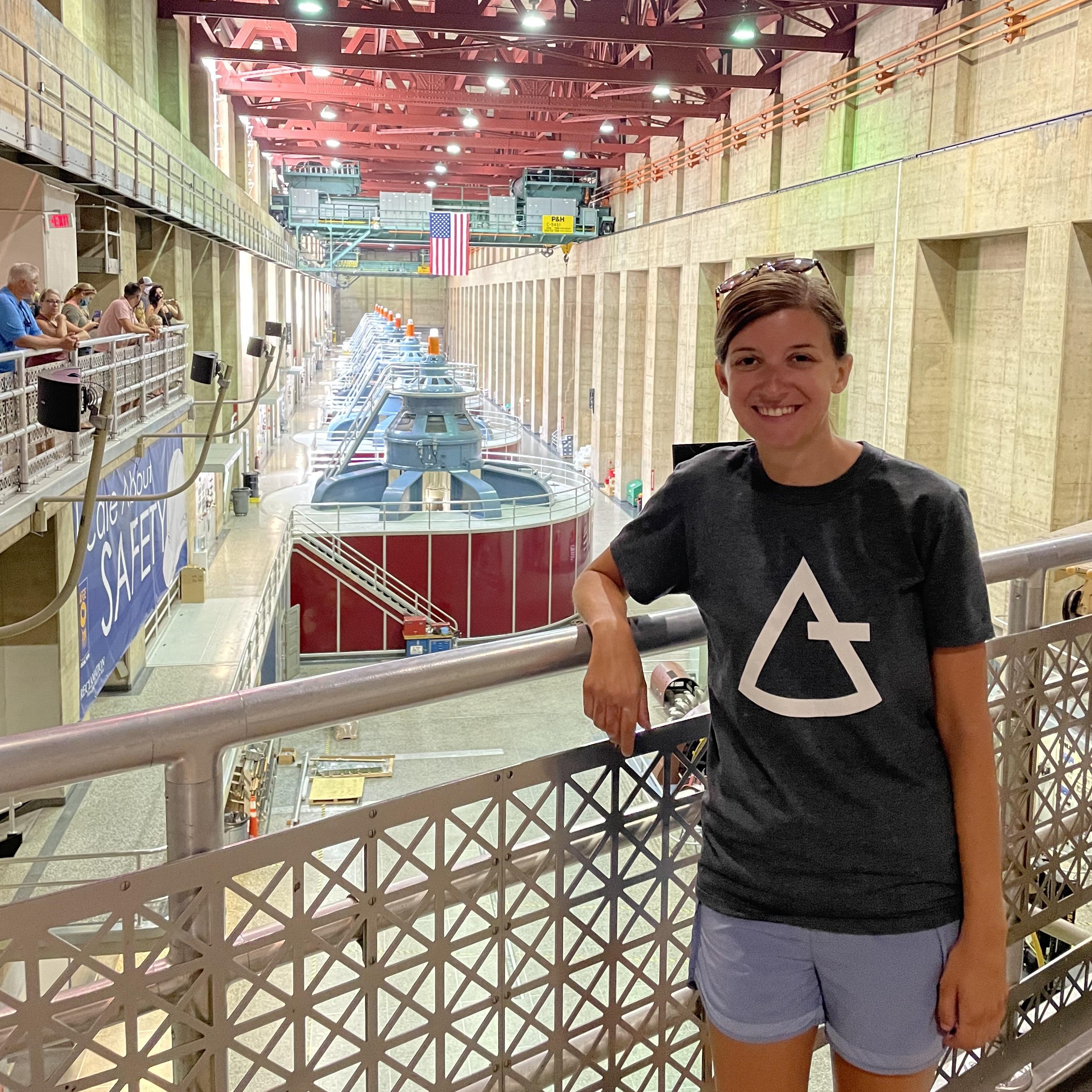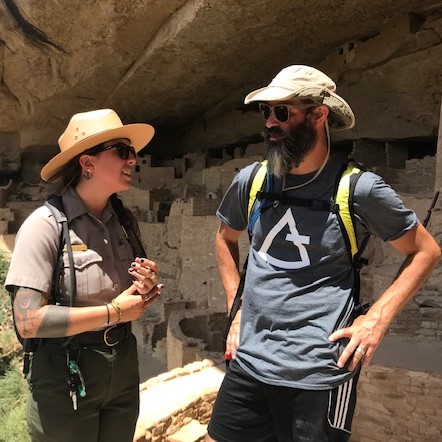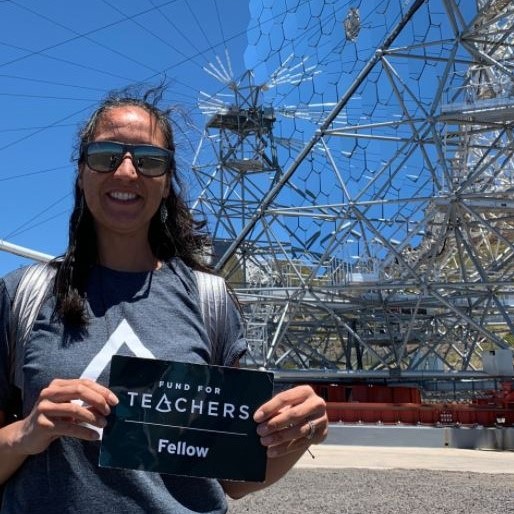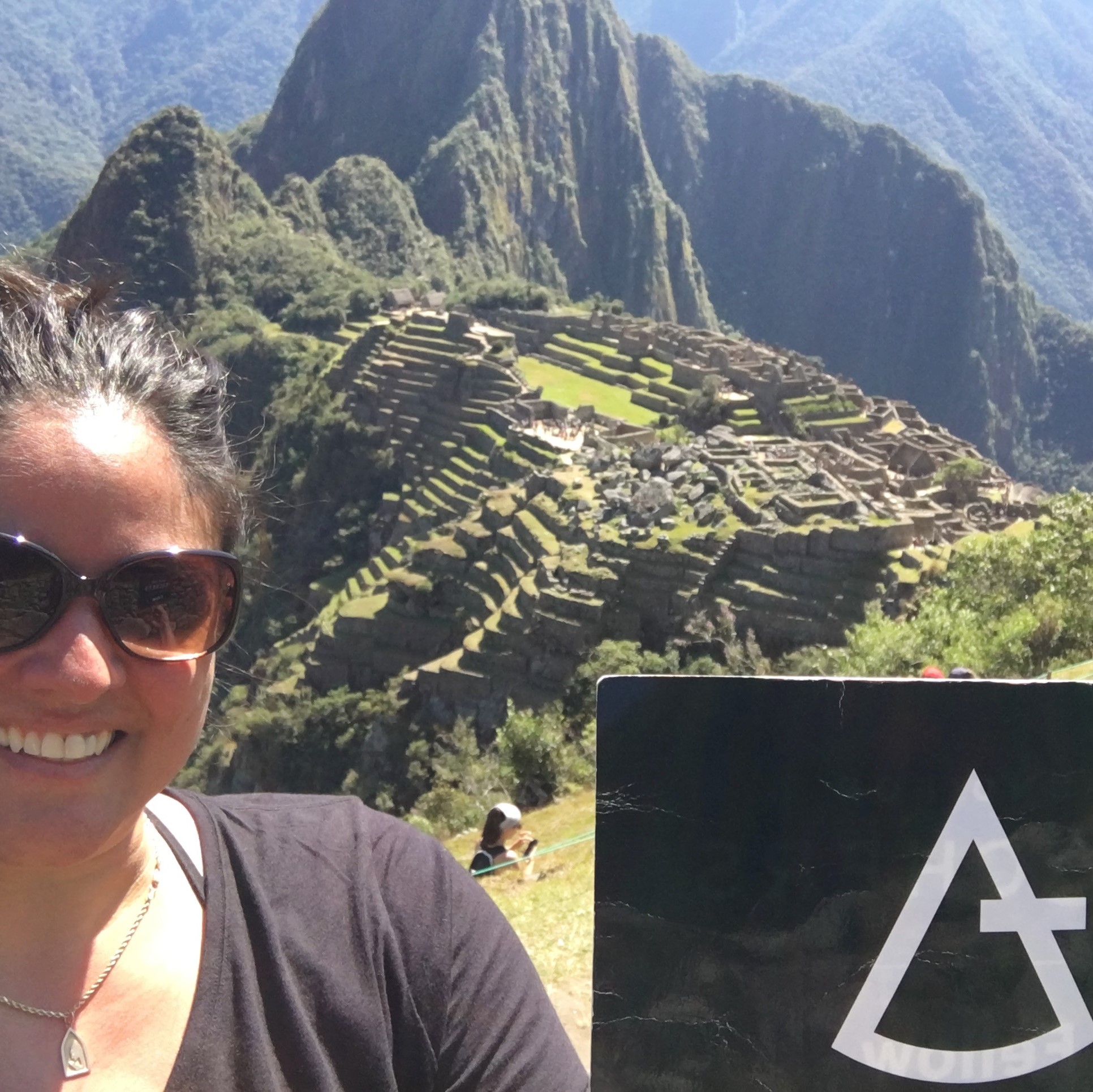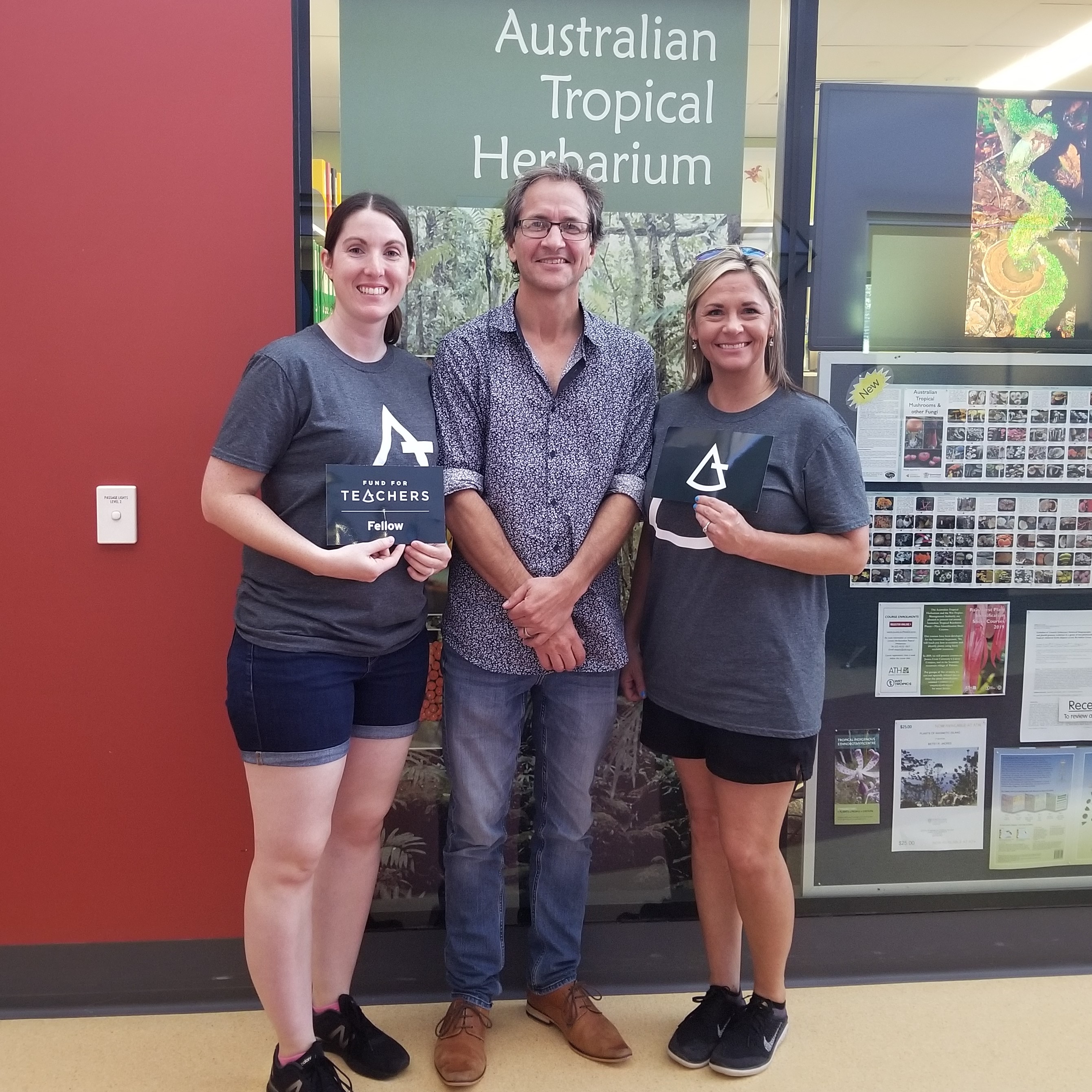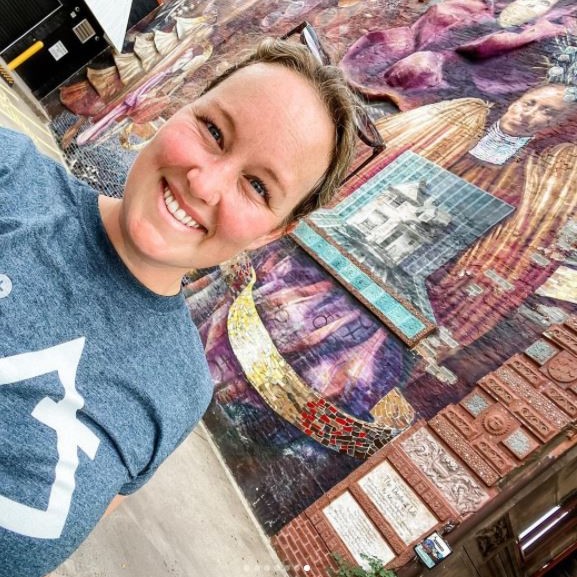Fund for Teachers’ North Star
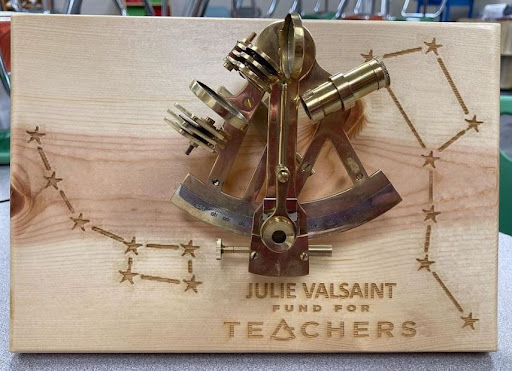
 This month we shipped our 2022 cohort of Fellows branded T-shirts, lanyards, and lapel pins in recognition of their accomplishment and in anticipation of seeing these items again on social media posts throughout the summer. The stylized “A” is the most prominent aspect of our logo, but the image means much more than the first letter of the English alphabet.
This month we shipped our 2022 cohort of Fellows branded T-shirts, lanyards, and lapel pins in recognition of their accomplishment and in anticipation of seeing these items again on social media posts throughout the summer. The stylized “A” is the most prominent aspect of our logo, but the image means much more than the first letter of the English alphabet.
Fund for Teachers chose the sextant as our logo because it represents, according to Astronomy.com, “a device descended from antiquity included aboard command modules to assist with guidance and navigation.” Perhaps you recall Jim Lovell, played by Tom Hanks in Apollo 13, using a sextant and stars to navigate safely back to Earth; however, as early as the Phoenicians, people have looked to the stars to navigate land and sea. Again, according to Astronomy.com:
“Sextants measure the angular distance between two different objects — usually distant stars, although on Earth the Sun and Moon can be used as navigational aids as well. Information derived from sextants can be used to identify one’s position on a map or chart and is vitally important when no land is in sight. Sextants were widely adopted after their introduction in the 1700s, as they could be used day or night and operated even aboard a shifting or unstable platform.”
Navigate uncertainties? Works day and night? Vitally important? Operates on a shifting platform?
Sounds like a teacher to us.
That’s why the sextant and associated themes inform our Creed:
Now, when you see images of teachers proudly wearing their swag on our social media posts, we hope you’ll see them as more than grant recipients. Because WE see them as explorers, pioneers and vanguards. And we are proud to call them FFT Fellows.
 Enjoy these images of previous Fellows representing around the world and watch for more on our our Facebook, Instagram and Twitter feeds in the coming months. And special thanks to FFT Fellow Julie Valsaint (Wagoner, OK) who shared the top image of the plaque crafted for her by teammate Stephen Biggs (pictured right) after they investigated the effects of water pollutants on local streams, rivers, and lakes, to see how water upstream affects the ocean ecosystem and created a unit on watersheds and conservation to use with Project WET through the nonprofit Blue Thumb.
Enjoy these images of previous Fellows representing around the world and watch for more on our our Facebook, Instagram and Twitter feeds in the coming months. And special thanks to FFT Fellow Julie Valsaint (Wagoner, OK) who shared the top image of the plaque crafted for her by teammate Stephen Biggs (pictured right) after they investigated the effects of water pollutants on local streams, rivers, and lakes, to see how water upstream affects the ocean ecosystem and created a unit on watersheds and conservation to use with Project WET through the nonprofit Blue Thumb.
 Back to Blogs
Back to Blogs